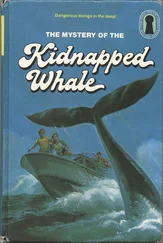I am not sure if this really explains the commotion, so early on a Saturday. Do people really come out of the woodwork to watch catastrophes?
It takes us another twenty minutes, but we inch towards the policeman who spoke to Rebecca. “Excuse me,” I say, leaning over the windshield. “We don’t really know where we’re going.”
“Not too many places you can go, lady. The whole city’s roped off for the demolition.”
We drive along a barricaded path, following other cars blindly. We pass the central post office and drive through its parking lot. We cross a river. Finally we get to a point where other people have stopped and are parking haphazardly. I find myself wondering how we are ever going to get out of here, now that six other cars have flanked our own, like petals. A fat man walks by selling T-shirts: I Knew Minneapolis Before They Changed the Skyline.
“Well, let’s go.” I climb out of the car and start to follow the people who are skipping eastward, like a pilgrimage. Whole families are going, the fathers carrying the youngest on their shoulders. We reach an area where people have stopped moving. Bodies start to settle on steps and railings and billboards, anywhere you can find a spot is okay. The woman next to us stops abruptly and hands the man she is with a styrofoam cup. She pours coffee from a thermos. “I can’t wait,” she says.
Rebecca and I find ourselves standing next to a large ruddy man in a flannel shirt with cut-off sleeves. He is holding a six-pack of Schlitz. “Beautiful day for wrecking,” he says to us, smiling.
Rebecca asks if he knows exactly which building is the Pillsbury building. “It’s this one now.” He points to a large skyscraper fashioned of chrome and glass. “But it used to be this one here.” He moves his finger across the skyline to a stubby grey building, a sort of eyesore next to all the modern ones. No wonder they want to knock it down.
“Did they try to sell the building?” Rebecca asks.
“Would you buy it?” The man offers her a Schlitz, and she tells him she is underage.
“Well,” he snorts. “Could’ve fooled me.” He is missing a tooth in the front. “You’re sure here at a historic moment. This building has been here forever. I remember when it was one of the only skyscrapers in Minneapolis.”
“Things change,” I say, because he seems to be waiting for a response.
“How are they going to do it?” Rebecca asks.
At this, a woman on the other side of Rebecca turns her head towards our conversation. “Dynamite. They’ve layered it on every other floor, so the whole thing’s gonna crumble systematically.”
Over an unseen loudspeaker, a voice booms. “We cannot demolish-the building until everyone is standing behind the orange line.” The voice repeats itself. I wonder where this orange line is. If it is as crowded up front as it is back here, the bystanders should not be blamed. They probably can’t see their own feet.
“You must move back behind the orange line before the demolition begins!” At this second warning, the crowd begins to press itself tightly together, like a thick knit sweater. I find myself pushed into the soft belly of the larger man. He uses my shoulder as a coaster for his beer.
“Ten . . . nine . . . eight . . .” the loudspeaker booms.
“Fuckin’ A,” the man says.
“Seven . . . six . . .” Somewhere, a fire engine screams.
I do not hear the final five numbers. The building caves in, in sequence, top down. It is only after the second layer falls that I hear the dynamite howl. The cinderblock crumbles floor by floor.
Boom! We hear the next explosion after the fact, after an entire section has been leveled. They are erasing history in one swoop. It takes no more than five minutes, the blasting, and then nothing’s left but a hole in the skyline.
The crowd begins to jostle and shove, and Rebecca and I get thrown into this flow. People, pulsing like blood, rush beside us.
About halfway to the car I realize why everything looks so different. Dust has settled over everything that has been immobile. Grey-white, like the artificial snow you see on television. Rebecca tries to pick some up but I brush it out of her hand. You don’t know what’s in that stuff.
I don’t even recognize the MG when we reach it: because we haven’t put up the top, it too is chalky. This dust gets on our clothes and between our fingers and we have to blink to keep it from getting into our eyes. The dust keeps coming, drifting over from the demolition site like nuclear fallout. Rebecca and I pull up the convertible top, something we haven’t done since we bought the car.
I know I still have to get Joley’s letter but I am reticent to walk the streets of Minneapolis. What if the other buildings fall? I suggest to Rebecca that we go out for breakfast.
Over bacon and hash I tell Rebecca that we are going to go to Iowa. To the place where her plane crashed. I tell her that I’ve been thinking about it. Since we’re out here anyway, I say. I tell her we can go right up to the ruins. From what I hear, they are still in the cornfield. I wait for her to raise an objection.
Rebecca doesn’t say what I am expecting. There is no resistance, really. Maybe Joley is right; she is ready for this after all. She asks, “Why are they still there?”
Uncle Joley talked my mother into joining the self-help group for abused wives when she returned to California after my plane crash. He said when you’re with other people living the same life as you, you feel better-and as always, she believed him.
In this case, it was a good idea. She never told my father, and since I was still practically a baby she took me along. She’d pick me up from preschool and we’d go to a therapy session. There were seven women. I’d crawl around the floor playing between their shoes with my toys. Sometimes a red-headed woman with bright jewelry would pick me up and tell me I was pretty; I think she was the psychologist.
The way the sessions began was what I liked: women who were almost always crying lifted up clothing to reveal welts and bruises in the shapes of kettles and pelicans. Other women would hum softly, or touch the less tender parts of the bruise. They were hoping to heal. Those, like my mother, who had no physical signs to show, brought their stories. They had been yelled at, put down, ignored. At this early age I could see the differences between physical and verbal abuse. I’d stare at the splits and swellings of the battered women. My mother always told a story. In comparison I thought we were lucky.
Within several weeks my mother stopped going to the group. She told me things were fine again. She said there was no reason to continue. My mother did not keep in touch with these battered wives. As mysteriously as we had met those women, we never saw them again.
Dear Jane-
You may not want to hear this but I have been thinking about why Rebecca survived.
The day her plane crashed, I was in Mexico. I was working on translating some Incan document, I think-part of my Grail ordeal. I knew you were at Mama’s; I had talked to you there a couple of days before. Anyway, I called to see how you were doing and you started to tell me what Oliver had done. He was going to send the FBI, you said, and even though I told you he didn’t have the clout for that you said you had put Rebecca on a plane that morning. “You’re an idiot,” I told you. “Don’t you see you’ve just played your ace?”
You didn’t understand what I meant by that, but then again you didn’t really see Rebecca the same way I did. I’d known it from the minute I first held her as an infant: She belonged with you; she was you. All my life I had been trying unsuccessfully to explain to people the wonderful combination of elements that made up my sister, and then, without even trying, you created a replica of yourself. Sending her back to Oliver; well, that was making the same mistake twice.
Читать дальше












